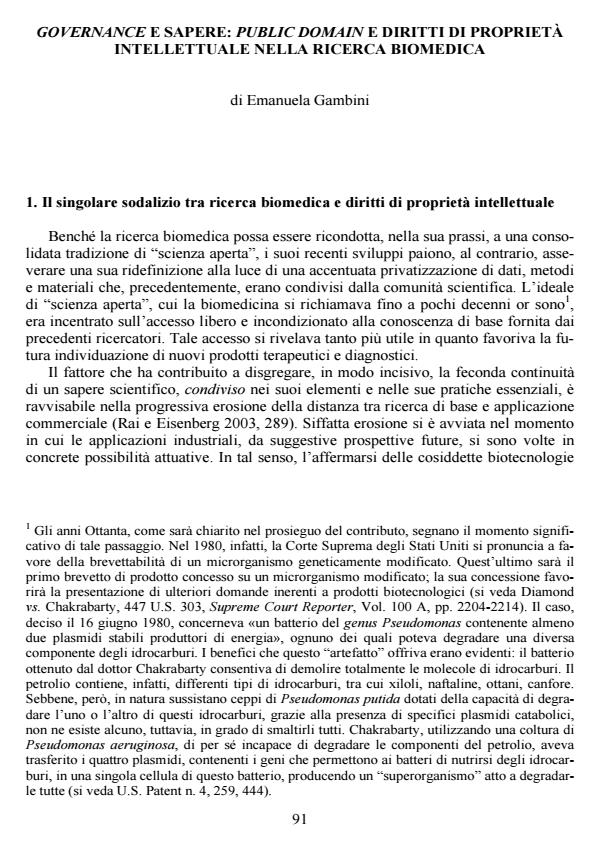Governance e sapere: public domain e diritti di proprietà intellettuale nella ricerca biomedica
Journal title SOCIOLOGIA E POLITICHE SOCIALI
Author/s Emanuela Gambini
Publishing Year 2005 Issue 2005/2
Language Italian Pages 16 P. File size 97 KB
DOI
DOI is like a bar code for intellectual property: to have more infomation
click here
Below, you can see the article first page
If you want to buy this article in PDF format, you can do it, following the instructions to buy download credits

FrancoAngeli is member of Publishers International Linking Association, Inc (PILA), a not-for-profit association which run the CrossRef service enabling links to and from online scholarly content.
Biomedical research boasts a very solid tradition of open science. However in the last two decades this traditiona has been eroded by intellectual property claims. Such claims encompass fundamental discoveries from which knowledge for future products is drawn. Although patents have been regarded as means to promote the progress of science, recent examples in biomedicine show that this is not always the case. Reiterated granting of patents not only on commercial end products but even on so called research tools may hinder further research, either by creating too many concurrent fragments of intellectual property rights or by increasing the transaction costs of bundling up such rights. These effects are sometimes strengthened by a deliberate policy of allowing applications for patents on the results of publicly funded research. The shortcomings of intellectual property rights can be better understood and dealt with according to the theory of the public domain, which offers a strong case for a new approach to the governance of science and knowledge.
Emanuela Gambini, Governance e sapere: public domain e diritti di proprietà intellettuale nella ricerca biomedica in "SOCIOLOGIA E POLITICHE SOCIALI" 2/2005, pp , DOI: